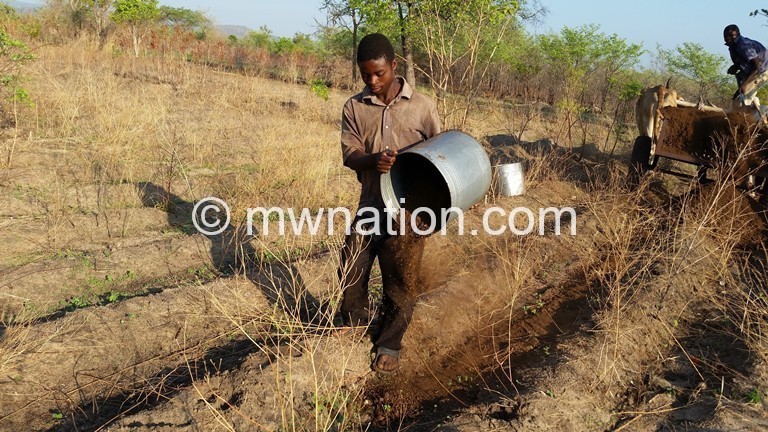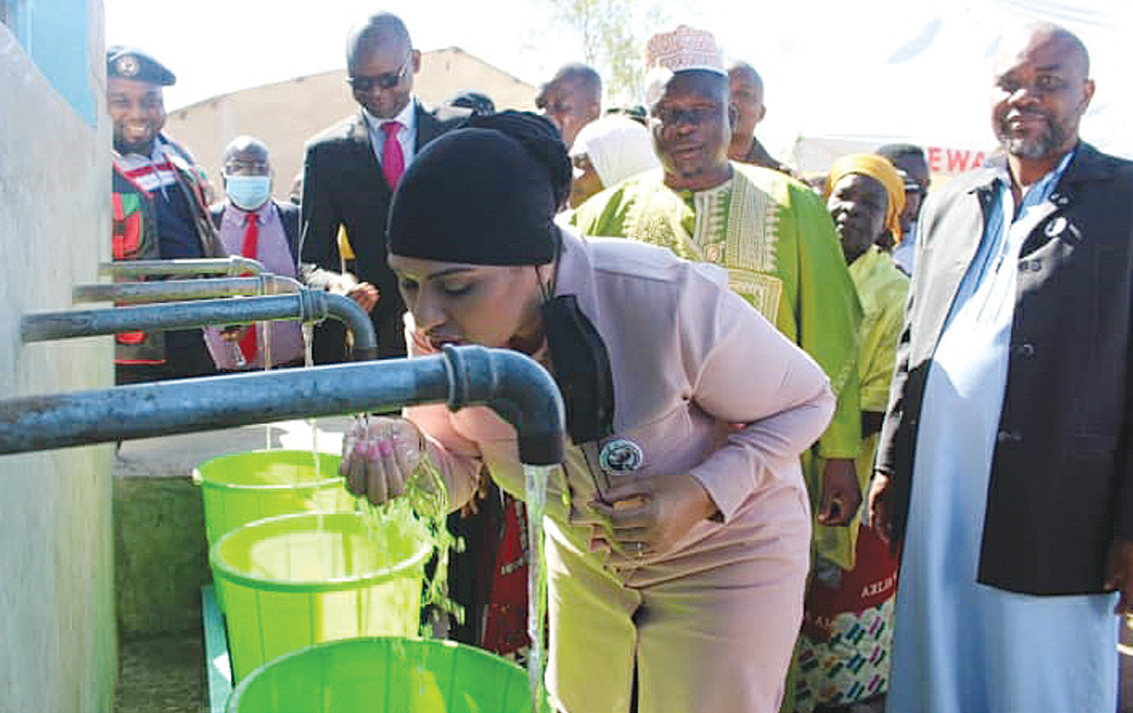Following the rise of chemical fertilisers, some smallholder farmers in the country are contemplating switching to manure in the 2022/23 farming season.
In the recent past season, a 50 kilogramme bag of Urea was at K29 500 while NPK was at K28 000.
A farmer applying manure
But the prices have since escalated due to the Russia/ Ukraine conflict, among others. Now, a 50 kg bag of Urea is selling at K55 000 while NPK is selling at K49 500 in agro-dealer shops.
Under the Affordable Inputs Programme (AIP) in the 2021/22 farming season, beneficiaries redeemed their fertiliser at K7 500 in the 2021/22 farming season.
But on Friday, when The Nation toured Lirangwe Extension Planning Area (EPA) in Blantyre, farmers bemoaned the new fertiliser prices.
Caroline Nausa, who is not a beneficiary of AIP, said she was not sure if she will afford to buy fertiliser at the current prices.
She said: “I have been using manure together with fertiliser and I have always had good yields.
“Last year, I did the same despite having challenges in buying fertiliser due to high prices. Now, with the current prices, I won’t afford. I will just use manure only.”
Nausa said she will concentrate on sourcing more manure so that she can use it in her maize garden that produces between 30 and 40 bags.
Another farmer from the same EPA, Frank Matewere, said despite being a beneficiary of the AIP, he is not sure if he will be able to redeem fertiliser with any upward price adjustments.
“Last year I struggled to raise K7 500 for the fertiliser. I don’t know what will happen if the subsidised price increases,” he said.
The prices are, however, anticipated to increase following the recent devaluation of the Malawi kwacha.
In an interview on Friday, Lilongwe University of Agriculture and Natural Resources (Luanar) agriculture economist Horace Phiri said despite opting for manure, farmers still need fertilisers for good yields.
“Alternatives exist but it’s important to note that most are second best, that is to say they will not give as much yield as organic fertilisers,” he said.
Phiri said while the Agricultural Technology Clearing Committee has not yet cleared Mbeya organic fertiliser, farmers can still turn to it if they can only afford small quantities of fertiliser.
He said this involves farmers combining a small amount of inorganic fertiliser and manure which is known to effectively improve yields.
Phiri said farmers can also opt to use foliar fertilisers which some companies sell at relatively low costs.
He said in the context of maize, farmers can also opt for legume intercropping, especially in maintaining soil fertility from the nitrogen fixation.
But when asked about government’s plan on the AIP fertiliser pricing, Ministry of Agriculture spokesperson Gracian Lungu referred the matter to the Ministry of Industry and Trade.
However, he said the ministry has been encouraging farmers to use organic fertilisers to complement the little inorganic fertilisers they can get through the subsidy programme.
“Through our Department of Land Resource Management, we have been assisting farmers to make manure as their use has more benefits in terms of land conservation and soil fertility aspect,” said Lungu.
However, our efforts to speak to Minister of Industry and Trade Mark Katsonga Phiri and spokesperson Mayeso Msokera proved futile as they both could not be reached on their known phone numbers since Saturday.
In the current national budget, government has reduced the AIP allocation to K109.5 billion from K142 billion in the 2021/22 fiscal year. In the 2020/21 financial year, the AIP was allocated K160 billion.
The post Farmers to turn to manure appeared first on The Nation Online.
 Moni Malawi
Moni Malawi 

